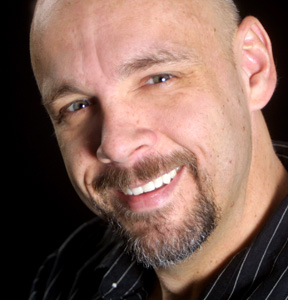Editorial
Front Page - Friday, October 22, 2010
The Critic's Corner
David Laprad

Going into “The Social Network,” I could not imagine how a movie about the origins of Facebook could be anything but mind-numbingly dull. Sure, brand recognition is important when selling a movie to potential viewers, but at least Transformers has lots of action and Batman has a cool cape. What could a Facebook movie offer to stir up adrenalin? Scenes of overly caffeinated computer science students devising an algorithm for a Web site?
How about a surprisingly dramatic story involving the betrayal of a close friend, Machiavellian business maneuvers, razor sharp dialog, Oscar-worthy performances and world class directing?
If even half of what’s portrayed in “The Social Network” is true, Facebook co-founder Mark Zuckerberg has some ‘splaining to do.
Actually, he’s already done a lot of it. “The Social Network” is framed around two depositions involving people who, in one way or another, had a hand in creating Facebook. As the story alternates between the two hearings, it goes back in time to show the events they describe.
In the movie, the tender roots of Facebook sprout during a break-up between Zuckerberg, a student at Harvard, and his girlfriend. Furious over being dumped, he storms back to his dorm room and creates a Web site called Face Mash, which displays pictures of two random college girls and prompts visitors to pick the hottest one.
The scene shows Zuckerberg’s computer skills as well as his disregard for authority, as he has to hack several protected servers to download the pictures.
When the site generates 22,000 hits in a matter of hours, Cameron and Tyler Winklevoss, also Harvard students, tap Zuckerberg to create a social network called HarvardConnection.com. One thing leads to another, and Zuckerberg launches his own college social networking site, dubbed TheFacebook.com, instead. When the Winklevoss brothers catch wind of the site, they erupt in anger. Later, they sue.
Standing by Zuckerberg’s side throughout the genesis of Facebook is Eduardo Saverin, Zuckerberg’s close friend. An early scene shows him creating the algorithm for Face Mash, and then as Facebook takes shape, he becomes the site’s CFO and business manager. However, when Facebook expands outside the college realm, his vision stays small.
Enter Sean Parker, creator of Napster, a charismatic character with the connections to take Facebook to the next level. (In a delicious morsel of irony, Parker is played by popular musician Justin Timberlake.) When he introduces Zuckerberg to some angel investors, he sets in motion a chain of events that culminates in Saverin being squeezed out of Facebook.
My rote description of the events in the movie doesn’t begin to articulate the intensity of the drama. The scene in which Saverin learns his ownership in the company has shrunk to .003 percent, while everyone else’s has increased substantially, is explosive.
In case you think “The Social Network” sounds too heavy for your tastes, rest assured director David Finch keeps things moving along at a nice clip. He also lightens things up by playing the Winklevoss brothers for laughs and peppering in just enough sex, drugs and colorful language to keep audiences engaged -- but not so much the movie earned an “R” rating. Apparently, you can now use the “F” word twice in a PG-13 film.
As good as Aaron Sorkin’s script and Fincher’s direction are, my favorite aspect of the movie was the performances, especially Jesse Eisenberg’s as Zuckerberg. In the opening scene alone, Eisenberg brilliantly conveys the key components of Zuckerberg’s personality as his girlfriend, Rooney, dumps him. As Zuckerberg makes Rooney’s blood boil and then tries to get her to simmer down, we learn he’s intelligent, arrogant, insensitive, maddening and self-seeking. The movie also suggests he’s socially clueless.
How much of the real Zuckerberg and the story of Facebook ended up on the screen? Sorkin based his screenplay on the book, “The Accidental Billionaires,” by Ben Mezrich. According to Wikipedia, the book’s publicist once described the book as “juicy fun” rather than accurate reporting. Furthermore, Sorkin told New York Magazine, “I don’t want my fidelity to be to the truth; I want it to be to storytelling.”
I’m always disappointed when I learn the events in a film based on a true story were tamer in real life. But as I read the story of the history of Facebook in articles available online, the drama seems intact.
My only disappointment with “The Social Network” is the lack of clarity concerning Zuckerberg’s willingness to cheat Saverin out of hundreds of millions of dollars. Sorkin and Fincher never explain this curiosity or show it develop, leaving a hole in an otherwise perfect tapestry.
That said, “The Social Network” already has a place on my list of favorite movies of 2010. If you miss it in theaters, catch it on DVD.
Email David Laprad at dlaprad@hamiltoncountyherald.com or find him on online at www.facebook.com/david.laprad.
|
|